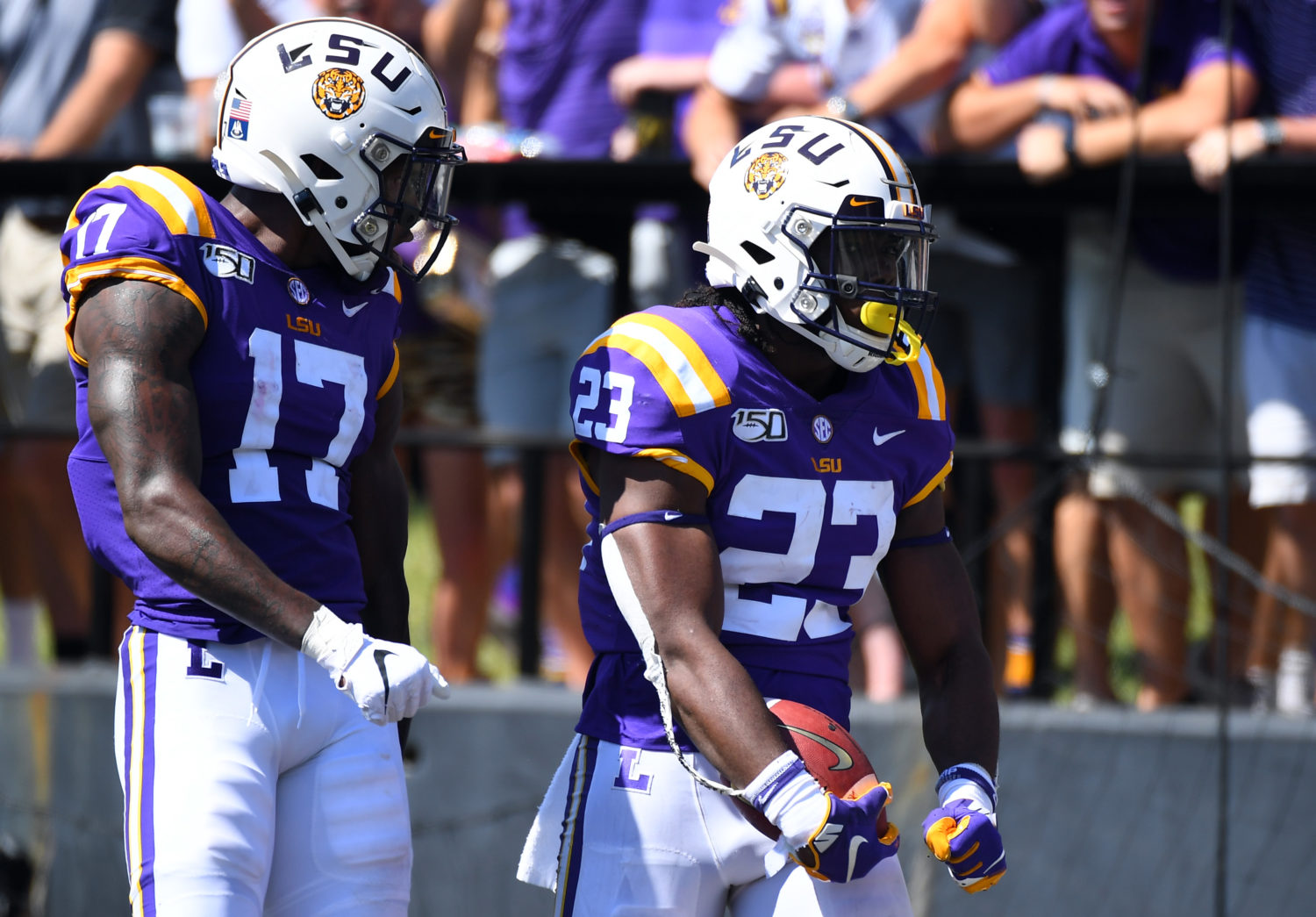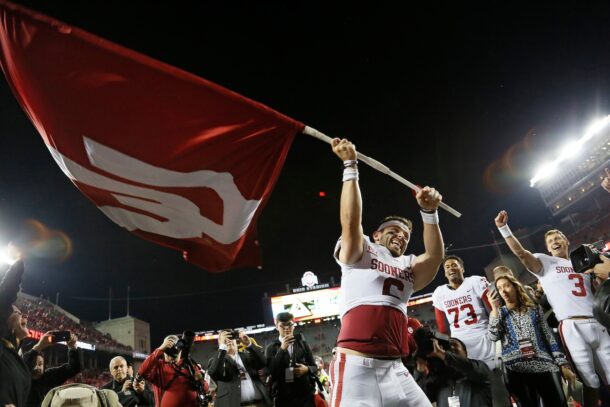
LSU’s historic pace might tell a different story as the season progresses
By Les East
Published:
Joe Burrow is on pace to pass for nearly 4,600 yards.
He’s on pace to throw 68 touchdown passes.
If he keeps it up it’s going to be pretty hard for him not to win the Heisman Trophy.
But he’s not going to keep that up.
His numbers through 4 games include games against Georgia Southern, Northwestern State and Vanderbilt.
The numbers he will accumulate in the remaining 8 games will include matchups against No. 2 Alabama, No. 3 Georgia, No. 7 Auburn, No. 9 Florida and No. 23 Texas A&M. So the pace will slow.
That doesn’t mean Burrow won’t continue to be extremely efficient (he’s completing 80.6 percent of his passes) and productive. And he might wind up in New York in early December.
But the numbers that demonstrate why the No. 4 Tigers are 4-0 will start to change once LSU comes out of its open date this week.
Perhaps Justin Jefferson will keep up his pace and finish with 1,176 receiving yards and 15 touchdowns.
Perhaps Ja’Marr Chase will keep up his pace and finish with 1,101 receiving yards and 15 touchdowns.
Perhaps Terrace Marshall Jr. will keep up his pace and finish with 912 receiving yards and 18 touchdowns, though he’s going to miss some time after undergoing foot surgery.
But just as Burrow’s pace is certain to slow, it’s all but certain that Jefferson, Chase and Marshall won’t all maintain their remarkable paces.
Of course the Tigers’ passing game doesn’t need to keep up its historic pace in order for the team to continue to contend for a CFP berth and for the passing game to remain a key factor if not the primary factor in that.
Other numbers figure to change over the final two-thirds of the season. Some will become less impressive, others will become more impressive.
The flip side of the passing game’s success has been the relative lack of productivity of the running game.
For instance, if current paces continue, the Tigers’ leading rusher will be Clyde Edwards-Helaire and he will finish the regular season with 864 yards. Not having a 1,000-yard rusher is not necessarily a big deal because LSU has several capable runners.
But at their current paces, John Emery II will finish with 207 yards, Tyrion Davis-Price will have 177, Lanard Fournette 108 and Chris Curry 90.
As for the offense as a whole, LSU is on pace to score 924 points, which would be more than twice as many as they scored last season (421) when they won 10 games.
The Tigers are not going to keep averaging nearly 58 points per game when they start playing all of those ranked teams, but that number can drop dramatically and the team can keep rolling if the defense does its part.
So far it largely hasn’t, though the numbers aren’t staggering because of the level of competition with the exception of Texas, which scored 38 points and gained more than 500 yards.
LSU is on pace to allow 283 points, which is almost the exact number it allowed last season (279), but that pace figures to increase going forward.
It’s on pace to allow 3,920 yards, which would be significantly fewer than the 4,403 allowed last season.
But the level of competition is going to go up so dramatically that the numbers are sure to follow.
There could be a lot of rewriting of the Tigers offensive record book, primarily the passing and receiving sections.
But if LSU is going to be a serious threat to win the SEC West and therefore remain a serious contender for a CFP berth, the statistics are going to change during the final two-thirds of the season, reflecting an evolution by the Tigers.
The passing numbers will become less gaudy, the rushing numbers will increase but not skyrocket and the defensive numbers will stabilize.
Les East is a New Orleans-based football writer who covers LSU for SaturdayDownSouth.com. Follow him on Twitter @Les_East.







